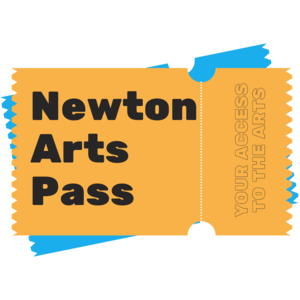Grant Information
- Please read all of this page to become familiar with the Newton Cultural Council’s (NCC) requirements beyond the Massachusetts Cultural Council’s requirements.
- Click on Grant Evaluation Criteria form to see how we grade each application. An NCC member may try to contact you for some of this information or any questions we may have.
- When you are ready, create an account at the MCC website by clicking on the link immediately below. Once at the MCC page, the actual application link is at the very bottom so scroll down. All applications must be submitted online through the Massachusetts Cultural Council’s grant application web portal.
- If you have received a grant from the NCC but failed to complete the required final report, please contact the NCC. 2023 recipients can file online here.
http://www.mass-culture.org/newton
Click here for a video from the MCC about navigating and filling in the grant application
If you experience trouble with the account registration email, please contact our regional representative at MCC, Timothea Pham by email at Timothea.Pham@mass.gov
2023-24 NCC Council Priorities:
The goal of the Newton Cultural Council (NCC) is to support the cultural vitality of Newton by funding excellence in creative, cultural and humanistic projects of cultural organizations, artists, and humanists that benefit and enrich our Newton community. The NCC awards grants to projects in the humanities, arts and sciences annually. It requires all proposals to have a public benefit for Newton residents and encourages collaborative projects, novel ideas and serving underrepresented populations.
The NCC encourages projects that elevate the voices and experiences of historically marginalized groups to highlight the current and historical diversity of Newton. The NCC strives to be an anti-racist, inclusive, diverse, equitable and accessible council. We seek to increase funding for programs in the arts, humanities, and sciences created by or featuring BIPOC applicants and audiences. Newton Cultural Council will create internal organizational systems, processes, structures and cultures that encourage any person to engage with us. In creating an anti-racist and equitable council, we actively seek a multitude of voices within our community.
The NCC does not fund Newton Public Schools programs.
The NCC will prioritize those proposals having a confirmed venue, as well as those with a clear promotional strategy.
2023-24 Guidelines:
APPLICATIONS must be submitted by OCTOBER 17th. Late applications cannot be accepted.
FUNDING PERIOD: July 2023 – December 2024
OBJECTIVES: To support activities that contribute to the cultural vitality of Newton, through funding creative, cultural and humanistic projects involving Newton cultural organizations and Newton artists and humanists.
ELIGIBILITY:
- The council awards grants to MA residents whose projects benefit Newton.
- Because NCC funding is not intended to be the sole source of project funding, the NCC requires applications to demonstrate other cash and/or in-kind funding.
- Applicants are encouraged to submit examples of their work: websites, YouTube, Social media, etc. are acceptable.
- An individual or organization may apply for no more than two grants in the same year.
NCC accepts applications from anyone included in the following list:
- Individuals. Individual applicants, which includes sole proprietors, must show that a public benefit results from the project for which they are requesting funds. Individual members of the NCC may apply for funding from but must observe all conflict-of-interest laws and regulations in the granting process.
- Incorporated non-profit organizations. Organizations incorporated as nonprofits with the Secretary of the Commonwealth.
- Unincorporated associations. A group of individuals coming together with a common purpose (e.g., local community band, theater group) that do not have nonprofit status.
- Incorporated for-profit organizations. For-profit organizations incorporated with the Secretary of the Commonwealth. This includes corporations, partnerships, and Limited Liability Companies (LLC). Applicants must show that a public benefit results from the project for which they are applying.
- Religious organizations. LCCs cannot fund activities that are “inherently religious” such as religious worship, instruction, and proselytization. Religious organizations or groups with a religious affiliation are eligible to apply for funding for a project or program that:
- is available to the general public.
- has purpose of benefitting the public, not the religious organization.
ACKNOWLEDGMENTS: WE TAKE THIS SERIOUSLY!
Flyers, programs, announcements, invitations, etc. printed or online for all funded projects must include BOTH the Newton Cultural Council and Massachusetts Cultural Council logos. That means your websites, Instagram, Facebook, etc. must include our logo.
All announcements must also include the phrase: “This program is supported in part by a grant from the Newton Cultural Council, a local agency which is supported by the Mass Cultural Council, a state agency.” Failure to do this will jeopardize current and future funding.
Further Explanations:
How does NCC define the arts, humanities, and/or sciences?
- Arts refer to the creation of work in the crafts and performing, visual, media, folk, design, literary, and interdisciplinary arts. In addition, they also include the presentation and preservation of, and education about works in these disciplines.
- Humanities are types of learning that deal with human values and aspirations, human thought and culture, language, and creativity. Examples include, but are not limited to, history, social studies, philosophy, criticism, and literature.
- Science is limited to its cultural, interpretive, and educational expression and refers to types of learning that deal with nature, science, and technology in ways that explain how they relate to people’s lives. Some organizations that conduct this type of activity include aquariums, botanical gardens, nature centers, natural history museums, planetariums, and science centers.
Public Benefit
NCC funds must be used to support activities that contribute to the cultural vitality of the community as a whole, rather than benefiting any private individual or group. However, this does not mean that a large crowd of people needs to participate in order to satisfy the public benefit requirement.
For example, an artist working with a small group of teens is a valid public benefit, or a project includes a large number of Newtonites as artists and/or audience.
Activities funded by the NCC should be available to the general public by exhibit, performance, demonstration, reading, or other means. A clear marketing plan is critical to any project in Newton and must include multiple outlets with appropriate contacts. For example, NewTV, Newton’s public access, requires a Newton member or producer to sponsor a submission – that person would be the appropriate contact. Like all cities, Newton has many different online communities, calendars and news outlets and no one solution exists for notifying all of them. They must be contacted one by one. The NCC does not do marketing for you but we have a partial list of contacts. We will promote your event on our website and FB/Instagram pages.
Encouraging Inclusion
 As part of our mission, Newton Cultural Council (NCC) desires to reach a broader, diverse and underserved audience. The Council encourages projects that elevate the voices and experiences of historically marginalized groups to highlight the current and historical diversity of Newton. If your performance requires a paid ticket, we ask that you provide a few complimentary tickets to be redistributed through Newton Cultural Development’s program “Newton Arts Pass”.
As part of our mission, Newton Cultural Council (NCC) desires to reach a broader, diverse and underserved audience. The Council encourages projects that elevate the voices and experiences of historically marginalized groups to highlight the current and historical diversity of Newton. If your performance requires a paid ticket, we ask that you provide a few complimentary tickets to be redistributed through Newton Cultural Development’s program “Newton Arts Pass”.
Newton Arts Pass (NAP) provides access to arts and cultural events and programs to those in need in our community, for free or at a discounted rate. Passes are available to Newton residents, or families with children enrolled in Newton Public Schools. You will find participating programs on the Newton Arts Calendar; just look for the NAP logo then email culture@newtonma.gov or call 617-796-1540 to check for availability and claim a pass.
If you are an artist or organization and would like to participate in Newton Arts Pass by providing tickets or scholarships, email culture@newtonma.gov with information about your event/program. You can also support NAP directly with your financial contributions by clicking HERE.
The Americans with Disabilities Act (ADA) requires that persons with disabilities have access to public programs or services on an equal basis with the rest of the public.
Federal law mandates that any programs or services that receive federal or state funding must be accessible to persons with disabilities and there must be reasonable accommodation made to provide an accessible environment. All events and programs funded by the NCC must consider access for persons with disabilities, including the facility or event location, as well as the content of the program. To ensure equitable access, an applicant’s first step is a candid assessment and identification of barriers (physical, virtual, cultural, communication) followed by a bold and innovative plan for improvement.
If an applicant puts forward a proposal for a project with strong potential for public benefit, but the LCC has concerns about access for persons with disabilities, the council may choose to award a conditional approval. This would allow the applicant the opportunity to address the concerns and improve access as a condition of receiving the grant.
Non-Discrimination
In accordance with state law, the NCC may not discriminate
against applicants and/or programs based on age, ability, ethnicity, race, religion, sexual orientation, gender identity or expression, nationality, geographic origin, or immigration, military, or socio-economic status.
